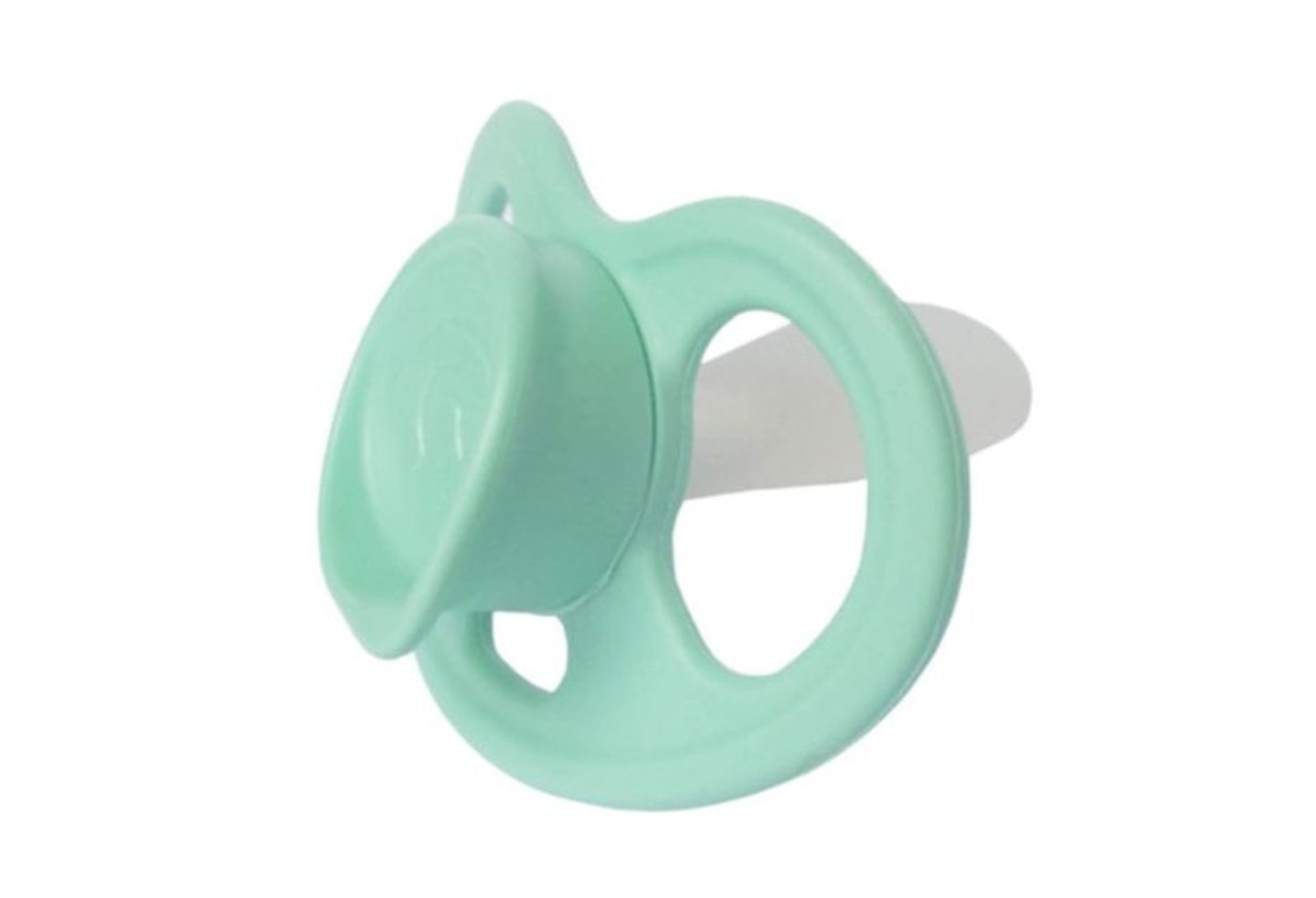Sleep deprivation; we’ve all been there. The midnight wake-ups, the heartbreaking cries, the exhaustion of soothing a newborn. It’s par for the course and you’re not alone, even if it can sometimes feel that way as you stumble out of bed in the middle of the night.
But there’s a new product on the market that may be about to change all that, bringing comfort to babies and their parents who might be experiencing persistent crying or colic. Meet the Qudo™ Soother, a revolutionary product developed by expert Paediatric Chiropractor and Craniosacral Therapist, Nicky Bateman. It’s taken 14 years of dedicated research and development, but by all accounts, the wait has been worth it.
Why do babies cry?
If you're considering using a dummy, it's likely you're trying to soothe your little one's cries. There are many reasons why your baby might cry – perhaps they’re hungry, overstimulated, need changing or are overtired. In fact, 60% of young babies suffer from persistent crying and colic and many parents turn to dummies to help soothe their little ones. The sucking motion is natural for babies and has been found to help reduce the stress hormone, cortisol, and lower the heart rate and blood pressure. If you're considering choosing a dummy for your baby, check out our guide to dummy safety and our recommendations for the best dummies, as chosen by mums like you.
What is the Qudo™ Soother?

The Qudo™ Soother goes one step further than other dummies. Its innovative teat is designed to rest against the baby’s upper palate while they suck, stimulating the Craniosacral Rhythm to release strain and tension in their skull and ease pain. Both natural and assisted births can cause the soft plates in a baby’s skull to become compressed but the Qudo™ Soother's teat works to release structural tensions in the head, which then helps to relax soft tissue connections elsewhere in the body. The sucking motion also helps to stimulate the production of oxytocin which can be a natural form of pain relief and help babies to feel more relaxed.
What is the Craniosacral Rhythm?
The Craniosacral Rhythm is pulses that can typically be felt in the skull and can become disturbed in babies during birth or as they grow, leading to discomfort and persistent crying. Qualified specialists such as Cranial Osteopaths and Craniosacral Therapists can feel these pulses by holding a baby's head, and this can allow them to determine if the rhythm has been disrupted. By then gently manipulating the baby's head, they can help to alleviate these disruptions, resulting in improved Craniosacral Rhythm and overall well-being.
Does the Qudo™ Soother work?
It's Nicky’s work and expertise in stimulating the Craniosacral Rhythm and her work with post-birth strains and tensions that shaped the development of the Qudo™ Soother and it’s this scientific background that has seen such groundbreaking results. An independent study conducted by the University of Surrey in 2019 found that 73% of babies who used the soother experienced a significant reduction in pain and persistent crying. As you might expect, this was beneficial for the wellbeing of the baby and their parents.
The feedback from parents backs this up, with one parent noting that its resemblance to a natural finger provided a more intuitive experience for babies. Another hailed it as a lifesaver for her newborn as “the soother helped him relieve tension, while not creating a need to constantly suck a dummy – for me, this was both brilliant and a lifesaver for a little one recovering from the birth process.”
Professional chiropractors have also recommended the Qudo™ Soother, with one saying it helped make “the cranial plates relax and … easier to shift.”
Can dummies help with Colic?
Parents have also found that the Qudo™ Soother has the potential to work as an anti-colic dummy, with one mum taking to Facebook to say that her son “went from uncomfortable and not very settled to the absolute opposite”. Colic is a little understood condition but as parents of a colicky baby will tell you, the crying can be extremely hard. If you think your baby might have Colic, we’ve put together a comprehensive guide to Colic including ways you might be able to help your baby, while the NHS suggests seeking out sources of support such as Cry-sis.
Science-led design
As a natural solution rooted in science, the Qudo™ Soother has the potential to be a gamechanger for parents and their babies. Not only is it scientifically innovative, but it’s also exceptionally well-designed for practicality. It’s made in the UK from medical-grade silicone and BPA-free plastics by a medical devices manufacturer so you can be confident that what you’re giving your precious newborn is safe. Even the shield has been designed with parents in mind – it has a perfect balance meaning the soother will stand up on any flat surface, so no need to worry about it falling onto unclean surfaces. And unlike other dummies which have a tendency to slip out of baby’s mouth, this one features a unique surface texture, making it easier to use and stay in the mouth. Science, practicality, and proven results? It looks like the Qudo™ Soother is about to become a must-have for sleep-deprived parents.
Find out more and buy the Qudo™ Soother.
Rebecca Lancaster is a Digital Writer for Mother&Baby, drawing on ten years of parenting her two children to help others navigating their own parenting journey. As a freelance writer, she spent ten years working with leading lifestyle brands, from travel companies to food and drink start-ups, and writing everything from hotel reviews to guides to the best British cheeses. She’s particularly interested in travel and introducing her children to the excitement of visiting new places, trying different foods (with varying success) and experiencing different cultures.
